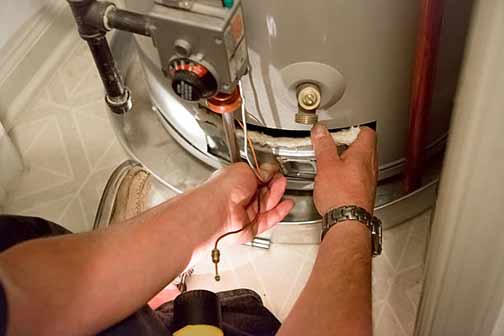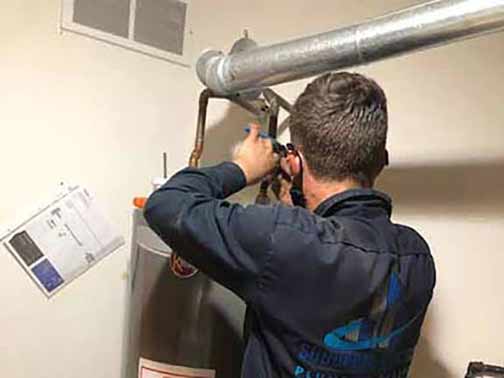
Water heaters are an indispensable appliance in most homes, providing the comfort of hot water for bathing, cleaning, and other everyday tasks. However, like any household device, they can face issues that require repairs. Here we will explore the complexities of water heater repairs, identify scenarios for DIY solutions, and understand when professional intervention is necessary.
Understanding Your Water Heater
Before attempting any repairs, it is crucial to understand the type and components of your water heater. Whether you have a traditional tank water heater or a tankless system, familiarity with its operation can help in diagnosing issues and determining your approach to repairs.
Common Water Heater Problems
Water heaters can encounter various problems, some of which can be resolved with simple DIY solutions while others may need professional assistance. Common issues include:
- No hot water: This could be due to a faulty thermostat, a broken heating element, or issues with the power supply.
- Inadequate hot water: This might indicate a malfunctioning thermostat or a need to adjust the temperature setting.
- Strange noises: Banging or popping noises can be a sign of sediment buildup in the tank.
- Leaking tank: This is usually a severe issue often requiring professional repair or a full water heater replacement.
- Discolored water: Rusty or muddy water may signal corrosion within the tank or piping.
When DIY Water Heater Repairs are Safe
Not all water heater issues require professional intervention. Some problems can safely be addressed by homeowners with basic mechanical skills and the right tools. These DIY repairs include:
- Resetting the thermostat: Often, no hot water can be resolved by simply resetting the thermostat on an electric water heater.
- Replacing heating elements: If you are comfortable with electrical work, replacing a burnt-out heating element can be a feasible DIY task.
- Flushing the tank: Removing sediment buildup by flushing the tank is a straightforward process that can be performed regularly to maintain efficiency.
- Adjusting temperature settings: Ensuring that the thermostat is set to the appropriate temperature can resolve issues with inadequate hot water.
Always follow safety guidelines and turn off the power supply before attempting any repairs on an electric water heater. For gas water heaters, turn off the gas supply to avoid hazardous situations.

When to Call a Professional Plumber
While minor repairs can be done on your own, certain issues require the expertise of a professional plumber. It is essential to know when to call for help to avoid exacerbating the problem and ensure the safety of your household. Situations that warrant professional assistance include:
- Leaking tanks or pipes: These can indicate severe damage that needs expert repair or replacement.
- Gas-related issues: Any problem involving the gas supply should be handled by a certified plumbing professional to avoid safety risks.
- Electrical faults: Complex electrical issues, such as faulty wiring or circuit problems, require the skills of a licensed electrician or plumber.
- Persistent problems: If the issue continues despite your DIY efforts, it is best to contact a professional to properly diagnose and repair the problem.
- Installation of new units: Installing a new water heater can be complicated and should be carried out by a professional to ensure compliance with safety standards and local regulations.
Steps to Take Before Calling a Plumber
If you decide that professional help is needed, there are a few steps you should take before the plumber arrives to streamline the repair process:
- Document the problem: Make notes about the issue, including when it started and any symptoms observed.
- Turn off the water heater: Ensure the power or gas supply is turned off to prevent further damage or safety hazards.
- Clear the area: Make sure the water heater is accessible by clearing away any obstacles to allow the plumber to work efficiently.
Maintaining Your Water Heater
Regular maintenance can prevent many common water heater issues and prolong the lifespan of the unit. Simple maintenance tasks include:
- Flushing the tank annually: This helps remove sediment and maintain energy efficiency.
- Inspecting and replacing the anode rod: This rod helps prevent corrosion of the tank. Checking it annually and replacing it when necessary can extend the water heater’s life.
- Checking the pressure relief valve: Ensure this safety valve is functioning properly to prevent excessive pressure buildup.
- Monitoring the thermostat setting: Keep the temperature at a safe and efficient level, typically around 120°F to 140°F.
Conclusion: Balancing DIY and Professional Repairs
Understanding when to attempt DIY repairs and when to call a professional plumber is key to effectively managing water heater issues. While some problems can be safely resolved with basic skills and tools, others require the expertise of a licensed plumber to ensure safety and proper repair. Regular maintenance can also go a long way in preventing issues and extending the life of your water heater.

